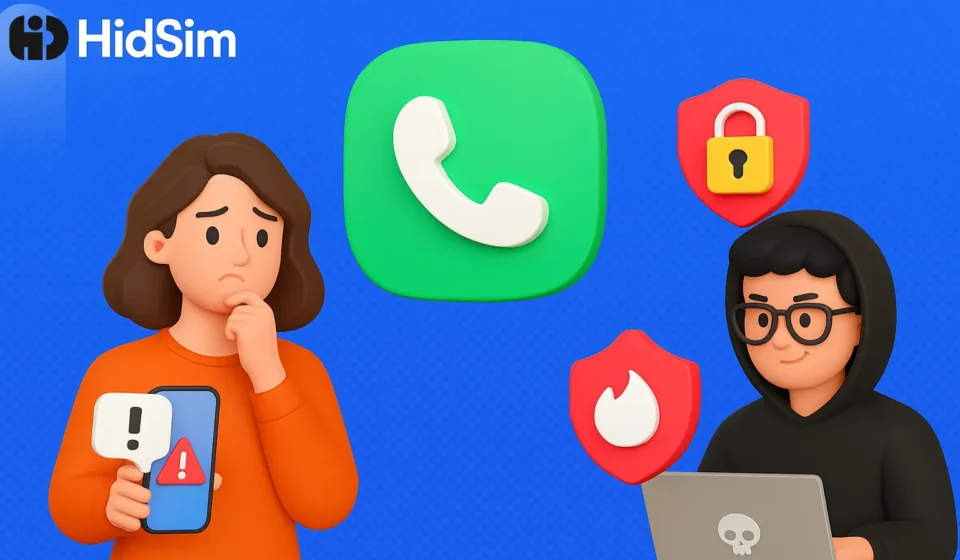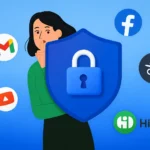
The Hidden Risks of Using Your Real Number for Online Registrations
In today’s hyper-connected world, your phone number is far more than just a tool for making calls or sending texts. It has become a digital ID tied to your bank accounts, social media profiles, and personal data. Yet, millions of people still use their real phone numbers for online registrations without realizing the hidden risks. Each time you hand over your number, you create a direct path into your private life.
Why Using Your Real Number Is Risky
When you enter your personal number on a website or app, it doesn’t just stop at account creation. That number can be stored in databases, shared with third-party advertisers, or exposed during a data breach. Even large, trusted companies are not immune to cyberattacks, meaning your number could eventually fall into the hands of spammers, fraudsters, or hackers.
Unlike an email address, your phone number is much harder to change. Once it’s leaked, you may face ongoing harassment, scams, or worse attacks on your digital identity.
The Hidden Dangers of Sharing Your Real Number
Spam and Robocalls
One of the first consequences of sharing your number online is unwanted marketing. Telemarketers and automated systems can bombard you with calls and texts, often making it nearly impossible to regain control.
Data Leaks and Breaches
Websites often claim to protect your data, but no system is flawless. If their databases are hacked, your phone number can be exposed alongside sensitive details like names, emails, or addresses. This gives attackers an easy way to connect the dots about your identity.
SIM Swapping Attacks
Perhaps the most serious threat is SIM swapping. Cybercriminals can trick your carrier into transferring your number to a new SIM card. Once they control it, they can bypass two-factor authentication (2FA), reset your passwords, and gain access to your email, bank, or crypto accounts.
Doxxing and Social Engineering
Your phone number can also be reverse-searched, revealing personal information such as your full name, location, or even family members. Scammers can use this data to impersonate you or manipulate you through social engineering tactics.
How HidSim Protects Your Privacy
The easiest way to protect yourself is to stop exposing your real number in the first place. With HidSim virtual numbers, you can separate your online activity from your private life. Instead of giving away your real SIM, you simply:
-
Get a temporary or disposable virtual number.
-
Use it for registrations, app sign-ups, or online forms.
-
Receive SMS codes instantly in the HidSim dashboard.
By using a virtual number, you cut off the main channel spammers and hackers rely on. Your personal SIM stays hidden, while your online activities remain fully functional.
For more insights, see our comparison: Free vs Paid Virtual Numbers.
When to Use a Virtual Number
A virtual number isn’t just about convenience; it’s about control. The following situations are where HidSim can provide maximum protection:
-
Registering for apps like WhatsApp, Telegram, or Tinder without exposing your real number.
-
Signing up on websites you don’t fully trust.
-
Joining online giveaways, forums, or free trials.
-
Managing multiple accounts, such as separating work and personal profiles.
-
Accessing region-locked services that require foreign numbers.
In each of these cases, a HidSim virtual number lets you enjoy the service while keeping your identity safe.
Your phone number is more than just digits; it’s a digital key to your identity. Using it recklessly for online registrations exposes you to spam, scams, and even full account takeovers. Once leaked, it’s almost impossible to undo the damage.
The solution is simple: stop sharing your real number everywhere. With HidSim virtual numbers, you can register safely, protect your privacy, and keep your personal SIM completely separate from your digital activity.
👉 Protect your identity today by choosing a HidSim virtual number instead of risking your real one.



